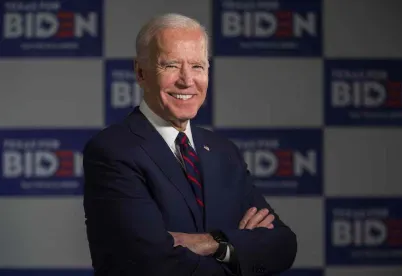With the unexpected—but slim—Democratic Senate majority in the wake of two wins in Georgia, President-elect Joseph Biden and Congressional Democrats have new opportunities to enact pro-climate energy and environmental policy. While it’s still unlikely that we will see sweeping stand-alone climate change legislation, we can expect to see targeted approaches to rollback Trump-era rules, further incentivize and encourage renewable energy development, restrict fossil fuel production on public lands, modernize the electric grid to handle renewable power sources and potentially put a price on carbon emissions.
Although bipartisanship will still be necessary to advance several priorities, Congressional Democrats can use a number of procedures to advance their agenda with simple majority votes to avoid significant compromises with Republicans. Below are three areas where Biden and Democrats can move their energy and environmental agenda in the weeks and months to come.
-
Confirmations—The confirmation process for senior administration officials will be easier and only require majority votes (with Vice President-elect Kamala Harris as the tie-breaker when needed). Senate Democrats will prioritize working with the White House to quickly consider and prioritize key officials’ confirmations to lead agencies such as the Environmental Protection Agency (EPA), Council on Environmental Quality (CEQ), Federal Energy Regulatory Commission (FERC) and the Departments of Energy, Interior and Agriculture.
-
Congressional Review Act—Since the Trump Administration continues to issue a number of “midnight regulations,” Congressional Democrats may attempt to repeal them using the Congressional Review Act (CRA), which gives Congress the ability to review and repeal recent federal regulations using an expedited legislative process. After a regulation is finalized, the CRA gives Congress 60 legislative days to pass a joint resolution of disapproval that must be signed by the President. Since Congress was out of session for an extended time in 2020, it’s anticipated that Democrats will be able to review regulations finalized as far back as June 2020.Passage in the Senate is by a simple majority with limited debate. Overall, the CRA has been used to overturn a total of 17 rules. In 2017, Republicans and President Donald Trump overturned 16 rules issued in the Obama Administration’s final months.
-
Budget Reconciliation—Democratic Congressional leaders may also use the budget reconciliation process to consider top legislative priorities, including COVID relief, tax reform, climate change and infrastructure. Under the budget reconciliation rules, the Senate can avoid the filibuster’s 60-vote threshold and pass legislation with a simple majority. Since the 1980s, Congress has successfully used the reconciliation process to pass 21 bills signed into law, and all major tax legislation has been enacted through the reconciliation process since 1990. This mechanism may be suited to enact the first-ever federal carbon tax or expand clean energy incentives.
If Congress doesn’t act, FERC could also set the stage for regional carbon prices. Biden can immediately appoint a new chairperson to the commission and, within months, flip control of the five-seat panel to Democrats. The agency is looking at carbon pricing in regional power markets and is proposing a policy statement to clarify it has jurisdiction over organized wholesale electric market rules that incorporate a state-determined carbon price—which can be set via a cap-and-trade system or other mechanism—in those markets.
More traditional legislation still has a shot at passage but will have to be bipartisan given a narrowly divided Congress. Furthermore, Democratic leaders will have to navigate around moderates within their own party and lure 60 votes to overcome a filibuster against major environmental legislation. Incoming Senate Majority Leader Chuck Schumer (NY) will have a challenge trying to get conservative Democrat Joe Manchin (WV) to sign off on the same bills as Bernie Sanders (VT) and Elizabeth Warren (MA).
Such legislation is possible and could include tax incentives for renewable energy, funding of clean energy innovations, and infrastructure legislation that invests in green technology. Another COVID-stimulus package could potentially dole out spending to power storage, upgrades to the nation’s grid and electric vehicle (EV) charging infrastructure. Issues that already enjoy some measure of bipartisan support include:
-
Technology Innovations—Lawmakers are expected to focus on advancing technologies on nuclear and geothermal power and energy storage, including greater use of hydroelectric plants for pumped energy storage. Biden’s clean-energy plan calls for “continuing to leverage the carbon-pollution free energy provided by existing sources like nuclear and hydropower, while ensuring those facilities meet robust and rigorous standards for worker, public, environmental safety and environmental justice.”
-
Electric Vehicles—Electric vehicle charging stations and other renewable energy infrastructure could be included either in an infrastructure package or reauthorization of the multiyear surface transportation bill. But many Republicans are skeptical of efforts to boost electric vehicles and, instead, back legislation to make EV drivers pay into the Highway Trust Fund.
-
Tax Incentives and Efficiency—Extending or revamping clean energy tax incentives is possible in part due to mounting GOP skepticism of the incentives coupled with Democrats’ eagerness to lower greenhouse gas (GHG) emissions. Democratic ideas include consolidating dozens of energy incentives into “technology-neutral” approaches, creating new tax credits for investment in emerging energy technology—like wind power and solar energy—and producing electricity from such technology, and an energy tax credit for energy storage technologies.
-
Streamlined Permitting—Finding consensus on the controversial matter of streamlining environmental permitting remains difficult. While President-elect Biden has provided few specifics on whether his administration would support wholesale changes to the National Environment Policy Act (NEPA), changes are needed if Democrats want to scale up renewables like wind, solar, and other clean energy projects.




 />i
/>i

